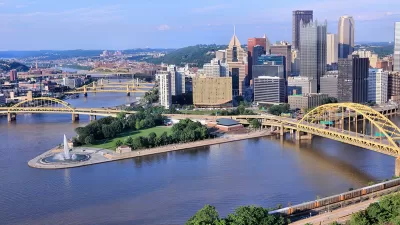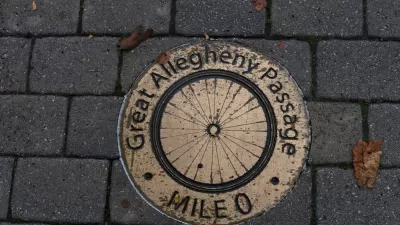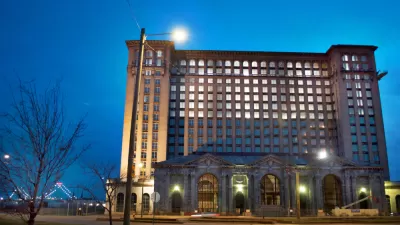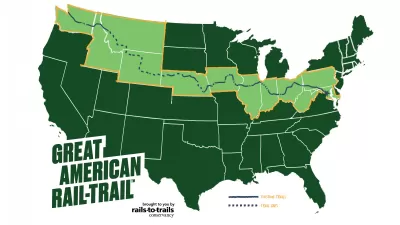The 220-mile route would connect the two cities and could potentially boost the economies of communities along the stretch.

"Connecting Pittsburgh to Cleveland by trail could be very good for both metro areas and people who live in them as well as elsewhere around the region and beyond. And not just for their legs and lungs and moods, but also for the health of local economies and communities," writes Bob Batz Jr.
The Rails-to-Trails Conservancy recently released a feasibility study for this corridor, part of a 1,500-mile route through New York, Pennsylvania, Ohio, and West Virginia. The stretch between Pittsburgh and Cleveland would also connect to other trail systems in the region.
Proponents say that the project would drive community and economic development, including tourism and residential developments near the trail.
The trail would be a major undertaking, and various gaps still exist along the route. "The study gives specific recommendations on how local groups can complete the missing pieces and estimates the millions of dollars that [it] will cost to do and to maintain," says Batz.
FULL STORY: Cleveland-to-Pittsburgh would be a big link in cross-country rail trail

Study: Maui’s Plan to Convert Vacation Rentals to Long-Term Housing Could Cause Nearly $1 Billion Economic Loss
The plan would reduce visitor accommodation by 25,% resulting in 1,900 jobs lost.

North Texas Transit Leaders Tout Benefits of TOD for Growing Region
At a summit focused on transit-oriented development, policymakers discussed how North Texas’ expanded light rail system can serve as a tool for economic growth.

Using Old Oil and Gas Wells for Green Energy Storage
Penn State researchers have found that repurposing abandoned oil and gas wells for geothermal-assisted compressed-air energy storage can boost efficiency, reduce environmental risks, and support clean energy and job transitions.

From Blight to Benefit: Early Results From California’s Equitable Cleanup Program
The Equitable Community Revitalization Grant (ECRG) program is reshaping brownfield redevelopment by prioritizing projects in low-income and environmental justice communities, emphasizing equity, transparency, and community benefits.

Planting Relief: Tackling Las Vegas Heat One Tree at a Time
Nevada Plants, a Las Vegas-based nonprofit, is combating the city’s extreme urban heat by giving away trees to residents in underserved neighborhoods, promoting shade, sustainability, and community health.

How Madison’s Tree Planting Efforts Are Growing a Healthier Community
Madison’s annual tree planting initiative is enhancing environmental resilience, public health, and community livability by adding 1,400 carefully selected trees citywide, with strong community and institutional support for urban forestry.
Urban Design for Planners 1: Software Tools
This six-course series explores essential urban design concepts using open source software and equips planners with the tools they need to participate fully in the urban design process.
Planning for Universal Design
Learn the tools for implementing Universal Design in planning regulations.
Ascent Environmental
Borough of Carlisle
Institute for Housing and Urban Development Studies (IHS)
City of Grandview
Harvard GSD Executive Education
Toledo-Lucas County Plan Commissions
Salt Lake City
NYU Wagner Graduate School of Public Service





























